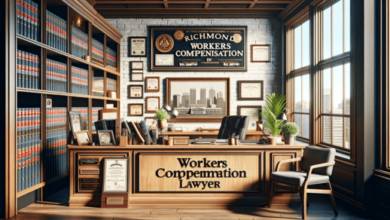
Commercial insurance, often referred to as business insurance, is crucial for protecting businesses from a variety of risks and potential losses. Here are 30 points discussing the pros and cons of commercial insurance and its significance for business owners:
Pros:
- Risk Mitigation: Commercial insurance helps business owners mitigate financial risks and unexpected losses.
- Protection Against Lawsuits: It provides coverage in case of lawsuits, covering legal expenses and settlements.
- Legal Requirements: Some types of business insurance, like workers’ compensation, are legally required in many jurisdictions.
- Asset Protection: It safeguards business assets, including property, equipment, and inventory.
- Business Continuity: Insurance helps maintain business operations even in the face of unexpected events.
- Liability Coverage: Commercial insurance includes liability coverage to protect against third-party claims.
- Financial Security: It provides financial security for business owners and investors.
- Risk Diversification: Insurance diversifies risk by transferring some of it to the insurer.
- Employee Protection: It offers coverage for employee injuries and health-related issues through workers’ compensation.
- Coverage for Property Damage: Business property insurance covers damage to buildings and contents.
- Fleet Protection: Commercial auto insurance covers business vehicles and drivers.
- Loss Recovery: Insurance helps recover losses due to various perils, such as fire or theft.
- Cybersecurity Coverage: Cyber insurance can protect against data breaches and cyberattacks.
- Income Replacement: Business interruption insurance replaces lost income during periods of disruption.
- Professional Liability: It covers professionals against claims of negligence or errors and omissions.
- Employee Recruitment: Offering benefits like health insurance can attract and retain talent.
- Tenant Obligations: Business renters insurance covers obligations to landlords for property damage.
- Customer Trust: Insurance coverage can build trust with customers who know the business is protected.
- Product Liability: It covers potential product defects and their consequences.
- Rental Equipment: Insurance can cover rented or leased equipment.
- Natural Disaster Protection: Coverage for natural disasters helps recover after events like hurricanes or earthquakes.
- Investment Support: Investors may require businesses to have insurance for risk management.
- Permit Requirements: Certain permits and contracts may require specific insurance coverage.
- Government Compliance: Compliance with government regulations often requires specific insurance coverage.
- Access to Loans: Lenders may require businesses to have insurance as a condition for loans.
- Peace of Mind: Business owners can operate with peace of mind knowing they are protected.
- Affordable Premiums: Premiums for business insurance can be cost-effective relative to potential losses.
- Customized Coverage: Policies can be customized to fit the specific needs of the business.
- Crisis Management: Some policies include crisis management assistance in the event of a significant incident.
- Environmental Protection: Environmental liability insurance can cover pollution-related risks.
Cons:
- Cost: Premiums can be a significant financial burden for small businesses.
- Complexity: Understanding the nuances of commercial insurance can be complex.
- Policy Limitations: Some policies may have limitations or exclusions that affect coverage.
- Risk Assessment: High-risk businesses may pay higher premiums for insurance coverage.
- High Deductibles: High deductibles can result in significant out-of-pocket expenses before coverage begins.
- Regulatory Changes: Changes in government regulations can affect insurance requirements and costs.
- Claim Denials: Like other insurance types, commercial insurance claims can be denied for various reasons.
- Rate Increases: Insurers may raise premium rates over time, making coverage less affordable.
- Policy Cancellations: Insurers may cancel policies under certain conditions.
- Over-Insurance: Overestimating the need for insurance can result in unnecessary expenses.
- Under-Insurance: Insufficient coverage may not meet the business’s needs.
- Environmental Impact: The insurance industry’s investments can impact the environment.
In summary, commercial insurance is essential for business owners to protect their assets and mitigate risks. While it comes with costs and complexities, the benefits of risk mitigation, legal compliance, and asset protection make it a vital part of responsible business management. Evaluating the specific needs of your business, seeking professional advice, and staying informed about changes in insurance requirements are essential for making informed decisions about commercial insurance.

